Aspiring author, owner of https://seekingdandelions.weebly.com/ She/Her
Don't wanna be here? Send us removal request.
Text
✏️ Writing Dialogue That Sounds Like Real People, Not Theater Kids on Red Bull
(a crash course in vibes, verbal economy, and making your characters shut up already)
Okay. We need to talk about dialogue. Specifically: why everyone in your draft sounds like they’re in a high school improv group doing a dramatic reading of Riverdale fanfiction.
Before you panic, this is normal. Early dialogue is almost always too much. Too polished. Too "scripted." So if yours feels off? You’re not failing. You’re just doing Draft Zero Dialogue, and it’s time to revise it like a boss.
Here’s how to fix it.
─────── ✦ ───────
🎭 STEP ONE: DETOX THEATER ENERGY I say this with love: your characters are not all quippy geniuses. They do not need to deliver emotional monologues at every plot beat. They can just say things. Weird, half-finished, awkward things.
Real people:
interrupt each other
trail off mid-thought
dodge questions
contradict themselves
repeat stuff
change the subject randomly
Let your characters sound messy. Not every line needs to sparkle. In fact, the more effort you put into making dialogue ✨perfect✨, the more fake it sounds. Cut 30% of your clever lines and see what happens.
─────── ✦ ───────
🎤 STEP TWO: GIVE EACH CHARACTER A VERBAL FINGERPRINT The fastest way to make dialogue feel alive? Make everyone speak differently. Think rhythm, grammar, vocabulary, tone.
Some dials you can twist:
Long-winded vs. clipped
Formal vs. casual
Emojis of speech: sarcasm, filler words, expletives, slang
Sentence structure: do they talk in fragments? Run-ons? Spirals?
Emotion control: are they blunt, diplomatic, avoidant, performative?
Here’s a shortcut: imagine what your character sounds like over text. Are they the “lol okay” type or the “okie dokie artichokie 🌈✨” one? Now translate that into speech.
─────── ✦ ───────
🧠 STEP THREE: FUNCTION > FILLER Every line of dialogue should do something. Reveal something. Move something. Change something.
Ask:
Does this line push the plot forward?
Does it show character motivation/conflict/dynamic?
Does it create tension, add context, or raise a question?
If it’s just noise? It’s dead air. Cut it. Replace it with a glance. A gesture. A silence that says more.
TIP: look at a dialogue scene and remove every third line. Does the scene still work? Probably better.
─────── ✦ ───────
💥 STEP FOUR: REACTIVITY IS THE GOLD STANDARD Characters don’t talk into a void. They respond. And how they respond = the real juice.
Don’t just write back-and-forth ping pong. Write conflict, dodge, misunderstanding. If one character says something vulnerable, the other might joke. Or ignore it. Or say something cruel. That’s tension.
Dialogue is not just information exchange. It’s emotional strategy.
Try this exercise: A says something revealing. B lies. A notices, but pretends they don’t. B changes the subject. Now you’ve got a real scene.
─────── ✦ ───────
🔍 STEP FIVE: PAY ATTENTION TO POWER Every convo has a power dynamic, even if it’s tiny. Who’s steering? Who’s withholding? Who’s deflecting, chasing, challenging?
Power can shift line to line. That shift = tension. And tension = narrative fuel.
Write conversations like chess matches, not ping pong.
─────── ✦ ───────
✂️ STEP SIX: SCISSORS ARE YOUR BEST FRIEND The best dialogue is often the second draft. Or third. Or fourth. First drafts are just you figuring out what everyone wants to say. Later drafts figure out what they actually would say.
Things to cut:
Greetings/closings ("Hi!" "Bye!"--skip it unless it serves tone)
Exposition disguised as chat
Obvious thoughts spoken aloud
Explaining jokes
Repeating what we already know
Readers are smart. Let them fill in blanks.
─────── ✦ ───────
🎧 STEP SEVEN: READ IT OUT LOUD (YES, REALLY) If you hate this step: too bad. It works. Read it. Mumbling is fine. Cringe is part of the ritual.
Ask yourself:
Would someone actually say this?
Does this sound like one person speaking, or a puppet show with one hand?
Where does the rhythm trip? Where’s the breath?
If you can’t say it out loud without wincing, the reader won’t make it either. Respect the vibe.
─────── ✦ ───────
🏁 TL;DR: If you want your dialogue to sound like real people, let your characters be real. Messy. Annoying. Human. Let them interrupt and lie and joke badly and say the wrong thing at the worst time.
Cut the improv class energy. Kill the urge to be ✨brilliant✨. And listen to how people talk when they’re scared, tired, pissed off, in love, or trying not to say what they mean.
That’s where the good stuff is.
—rin t. // thewriteadviceforwriters // official advocate of awkward silences and one-word replies
P.S. I made a free mini eBook about the 5 biggest mistakes writers make in the first 10 pages 👀 you can grab it here for FREE:
3K notes
·
View notes
Note
As someone who saw the first wave of Chromebooks being rolled out (who ‘volunteered’ (unpaid labour) as a technician type person), Chromebooks aren’t the win councils think they are.
Giving students Chromebooks means they’re reliant on whether or not the thing’s charged (teachers don’t usually let kids charge them during class because wires = tripping hazard, and it’s another way to mean and condescending ‘it’s a privilege, it’s a responsibility, if you aren’t prepared to learn then you’re ungrateful and evil’). This obviously puts a strain on people who come from low income families (moreso nowadays with the price of electricity), and people who suffer from things like ADHD and have trouble keeping track of things like that.
No more paper notes means that once they’re out of school and their school login is deleted, they’re never seeing any of it again, unless they’ve meticulously backed it up. Retaining information with typed notes is also really, really hard for a lot of people. Not to mention that everyone’s complaining about that kids screen time… basing most of their education around laptops and iPads leads to increased screen time, possibly eye problems.
And, the cherry on top, is that it makes skyving so much easier. I spent most of sixth year playing Club Penguin Reloaded, Skribble, variants of agario… More tech savvy people could take on the big task of downloading an unfiltered browser (which took about three clicks), which meant I could add Discord to my assortment of time wasting websites.
Plus they break. Not a lot, but in a building where an army of under 18s have these devices, there’s always something wrong somewhere. One time a kid came into the technician room with a smashed up Chromebook. ‘My gran picked it up,’ he said. His gran must have been the Incredible Hulk because that thing was BUSTED.
So yeah. Pencil, paper, supervised computer room. Occam’s Razor, guys, literally just ask one twelve year old and they can figure all of this out.
Fife Council are buying every P6-S6 (~9-17 age for non Scots) student their own iPad. This is projected to cost over £50 million, without clear benefits. Meanwhile, schools are chronically understaffed, and entire subjects are being cut due to the sheer lack of people to teach them.
Yeah that’s dumb, ipads and chromebooks don’t teach computer literacy.
99 notes
·
View notes
Text
Fantasy Guide to Political Structures

A Horse! A Horse! My X for a Horse!
Let's be honest, fantasy authors love their kingdoms and empires. You can throw a rock in a bookshop or a library in the fantasy section and you will 99.99999% hit a fantasy book that will be set in or mention either of those structures. But what are they really? What's the difference between them all? Are there any more examples of structures that would suit your WIP better? Are you using the right terms? Let's have a closer look.
Duchy

A Duchy is a small territory ruled by a Duke/Duchess. While Duchies can be found in kingdoms, some duchies were sovereign states in their own right. Duchies are usually small by land mass but some duchies such as Burgundy were extremely powerful and influential. Independent Duchies were usually apart of a kingdom but grew so powerful that they eventually broke away to become a sovereign state in their own right. An example would be modern day Luxembourg, historic Milan and Burgundy.
Principality

A principality is territory ruled by a Prince/Princess. A principality is typically smaller than a kingdom and in some instances, can be apart of a larger kingdom or be a sovereign state. Principalities have a history of having broken away from a larger kingdom or eventually becoming apart of a kingdom. A principality within a kingdom is ruled by a Prince/Princess, usually an heir of the monarch and can be used to train them up to assume the throne in the future. Examples include Monaco, Liechtenstein and Andorra.
Kingdom

A sovereign state/country that is ruled by ruling King or a Queen. A kingdom is much larger and more powerful than a principality. Kingdoms can be feudal, meaning they are ruled in a strict hierarchy or an autocracy where the monarch rules alone with minimal input from the government or constitutional where the monarch is more of a figurehead and the government has a good chunk of control. Examples include England, Thailand and modern day Spain.
Commonwealth

A Commonwealth isn't a popular choice in fantasy but it is an interesting structure. A Commonwealth in its most basic form is a collection of states that are linked by either a shared culture or history. A Commonwealth can be a politically power or an economic power, with every state allowed to participate as much as they like. Not one state leads the others, it is all one group of equals. A Commonwealth can be a good idea for a group of nations that are more powerful together with them keeping their own independence.
Federation

A Federation is a political structure that is made up of united states or countries that are under a single government but each state is still independent and rules itself. Each state can have different laws, different cultures and economies but they all answer to the single government. Examples include the United States of America.
Republic

A Republic is a territory that is ruled by leaders and heads of state that have been elected on merit and by choice of the people. Republics are not just countries but can also be much smaller areas such as cities. Republics are democratic in nature, with the people having a say in who leads them in accordance to a constitution. There are many kinds of Republic: presidential, parliamentary, federal, theocratic, unitary. Examples of Republics include the Republic of Ireland and the city of Florence.
Protectorate

A Protectorate is a country/region/territory that is independent but relies on a larger, more powerful state for protection either in a military or diplomatic sense. A Protectorate was often used by Empires in order to maintain control over an area without annexing it. There are many reasons a larger state and the protectorate would agree to this, mainly the protectorate is much smaller meaning it is far more vulnerable to attack or it has very little power when compared to other states. A Protectorate allows the territory some power to rule itself but the larger state may feel the need or desire to interfere in the dealings of the territory. Examples of protectorates include the client kingdoms of the Roman Empire like Egypt before its annexation and Puerto Rico.
Empire

An Empire is a collection of nations that are united under one sovereign head of state or government. An Empire is formed by one nation steadily taking control of other nations, either through straight invasion and colonization or acquiring them through marriage and other less violent ways. An Empire is powerful mainly because it can drum up more resources, more influence and more military power. An Empire might impose the traditions, beliefs and culture of its principal nation - the nation that started it all - onto its colonies for better control and feeling of uniformity. Empires never last, that is something to always remember. Empires will eventually fragment due to the vast size and sometimes revolt among the conquered states. Examples of empires include the Roman Empire, the Byzantine Empire, the Ottoman Empire.
6K notes
·
View notes
Text
Fantasy Guide to Royal and Noble Marriages
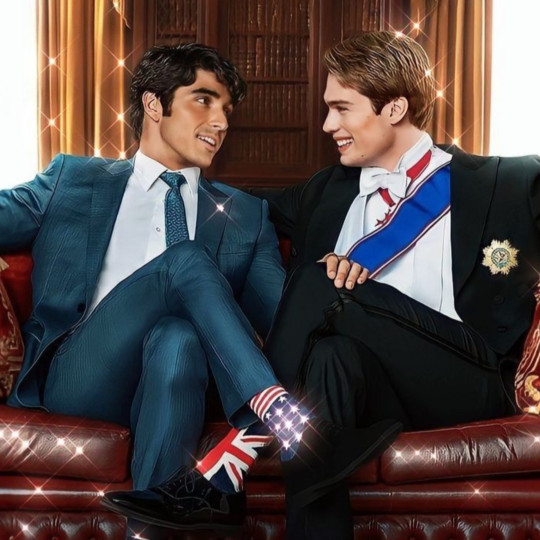
Marriage is an important part of the life of both royal and nobles in any setting, either historical fiction or fantasy. Marriages are not only life long commitments but they are business and protection deals by families. These are strategies, not relationships. So how can we write them?
Why make a Marriage?
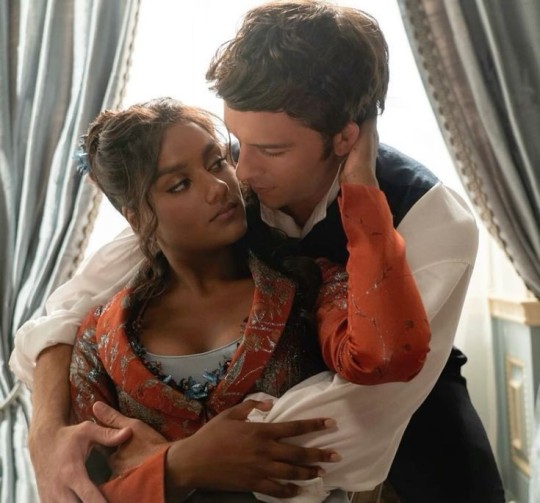
Marriage is at its heart, the seal on an agreement. Two families may come to an agreement to share resources, connections and support one another. For a noble family, it could be about elevation. For example, if the daughter of an Earl marries a Duke, her siblings can now make higher marriages and her family would be more important thanks to this link. It could even be about money. In the late Victorian - Early Edwardian period, many impoverished English peers married wealthy American women for their fortunes. In exchange, the women became titled aristocrats. Royal marriages are made for more universal perks. A royal marriage can change the political layout of the world, it could isolate a kingdom or be the starting gun or a war or end a years long conflict. For example, Kingdom A might be being threatened by Kingdom B. Kingdom C has a powerful military. Kingdom A might offer up a marriage deal to Kingdom C, with the caveat that C protect A from B. C would obligated to act if A gets attacked by B, since A is now an ally. A marriage cements the deal as it creates family ties, which is seen as a sort of permanent stamp on negotiations. After all, would you screw over family?
Marriages of Choice vs Arranged Marriages
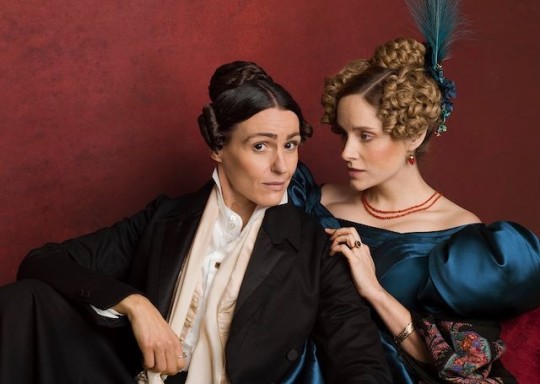
Marriages can either be made on behalf of a royal/noble or made by themselves. An heir might be more restricted in this case whilst a younger children have a little more leeway especially if they are part of a large family.
Marriages are not always arranged. But that doesn't mean there aren't restrictions. Any royal or noble will have a list of certain attributes their spouse must have or certain attributes they cannot have. Marriages of choice have to be approved by parents (and the crown if you are a high ranking noble) and if you are royal, sometimes by the government itself.
Arranged marriages are agreements between two families. They might want each other's protection, support or they might simply want to do business together such as opening trade corridors or lifting embargoes on certain items. Arranged marriages are usually made on behalf of both spouses and they are expected to agree to the match for the sake of their family or country.
Screwing over the Deal
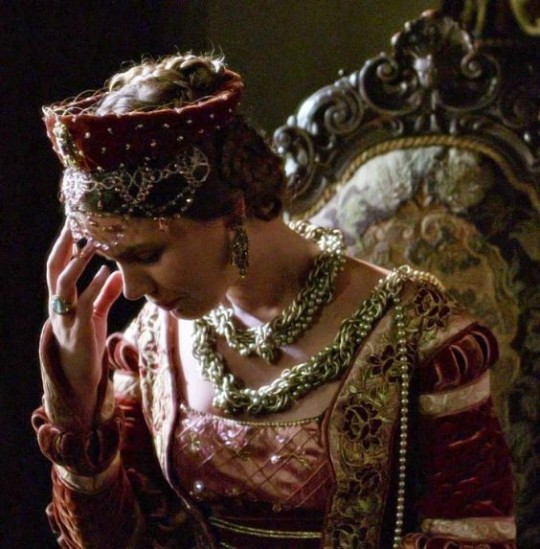
Making a marriage doesn't mean that the deal will last forever. Alliances change and circumstances shift. Whilst everyone may be all friendly during negotiations and for some time after, politics is the aim of the game. Treaties can be broken, war can break out and marriages can become unpopular choices. If a country has welcomed a bride/groom one day and then their country becomes the enemy, the bride/groom could become an enemy as well and face isolation and disrespect from the public - even their new family. However they are expected to be loyal to their new family and country, even over their own family and kingdom. These marriages have no promise of happiness. They are a job, a duty to ensure the family is taken care of and securing their futures.
Timeline of a Royal Marriage between Two Royal Families
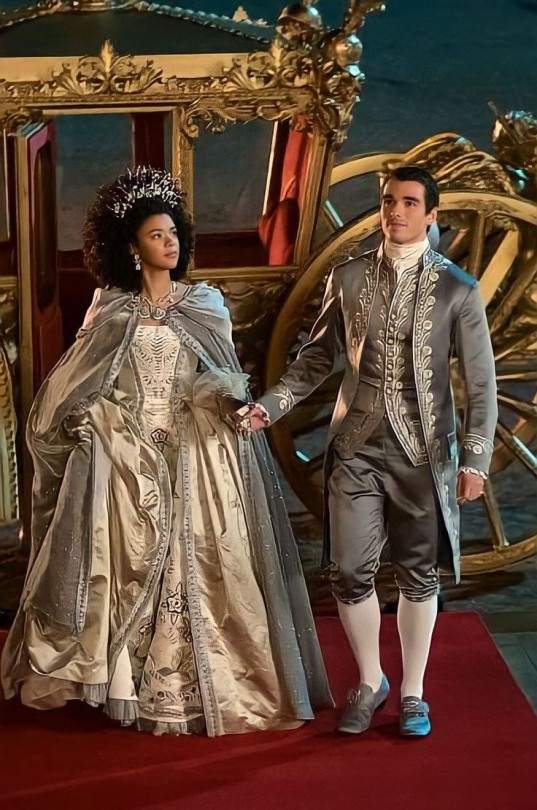
Offer: The suggestion is made.
Negotiations: The discussion through ambassadors of what a marriage might entails, what each side is willing to provide or what they demand of the marriage. This can take weeks, months even years before a marriage is agreed.
Betrothal: Marriage is approved, treaty signed and the couple is engaged. Betrothals can last from anything from a few weeks to years
Wedding: If one spouse has to travel to their new home, they will travel to their new home and meet their new court, new family and their spouse. Once they arrive, the wedding will take place in a matter of days.
Married Life
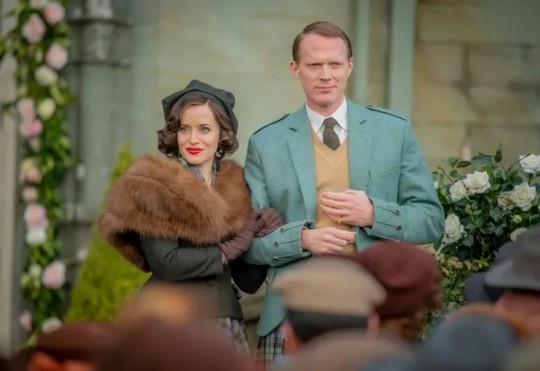
These marriages are public, so it is expected for the couple to at least act civil. If they do not like one another or can't stand the sight of another or they just don't love each other, is irrelevant to society and their expectations. They are expected to attend certain events together, sire children and do their duty. There's no rules saying they must live together, so many lived separate lives. The higher ranking spouse is expected to provide their spouse with an allowance and a staff. For international marriages, spouses are not permitted to hire a large party of their own attendants even if they accompany them to their new country. They may keep one or two for company but a newly minted royal should not be waited on by foreign servants, they are a royal of their new kingdom now.
What makes a "good" marriage?
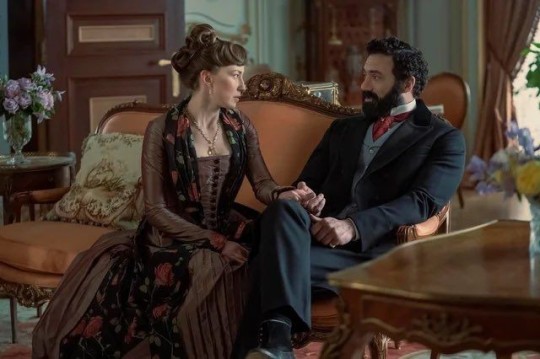
As mentioned above, marriages and relationships are expected to fall into certain perameters. Any spouse - chosen or assigned - should meet certain standards such as be of appropriate rank, follow societal norms and even sometimes be of the same religion. Marriages to anybody who falls out of these standards can be seen as a devasting move - the marriage of Edward IV is still remarked on as a contributing factor to the end of the Plantagenet dynasty. Making the wrong choice of spouse in society's eyes can lead to gossip, being shunned, being disrespected and even barred from succeeding to your birthright. Unequal marriages or morganatic marriages, can even bar children from succession, disallow the couple from attending events together and deny the spouse the style they ought to be entitled to - the marriage of Archduke Franz Ferdinand is a good example to study. A good marriage is seen as one that adheres to all the expectations of society - even if it is an unhappy one.
734 notes
·
View notes
Text
Enemies to "I accidentally came across you while you were vulnerable and scared and I'm not a total asshole so I tried to help you" to "accidental mutual uncovering of softer sides and vulnerabilities" to "I can't be mean to you anymore, not out of pity but because it would feel weird betraying that brief truce we had" to "Fine I'll make an effort to be nice to you now I guess" to "actually now that we're not actively hating each other you're not so bad I guess" to "i think we're friends but I'm not going to say that because I'm afraid you're not gonna feel the same way" to "oh you also think we're friends? Great" to lovers
113K notes
·
View notes
Text
Another worldbuilding application of the "two layer rule": To create a culture while avoiding The Planet Of Hats (the thing where a people only have one thing going for them, like "everyone wears a silly hat"): You only need two hats.
Try picking two random flat culture ideas and combine them, see how they interact. Let's say taking the Proud Warrior Race - people who are all about glory in battle and feats of strength, whose songs and ballads are about heroes in battle and whose education consists of combat and military tactics. Throw in another element: Living in diaspora. Suddenly you've got a whole more interesting dynamic going on - how did a people like this end up cast out of their old native land? How do they feel about it? How do they make a living now - as guards, mercenaries? How do their non-combatants live? Were they always warrior people, or did they become fighters out of necessity to fend for themselves in the lands of strangers? How do the peoples of these lands regard them?
Like I'm not shitting, it's literally that easy. You can avoid writing an one-dimensional culture just by adding another equally flat element, and the third dimension appears on its own just like that. And while one of the features can be location/climate, you can also combine two of those with each other.
Let's take a pretty standard Fantasy Race Biome: The forest people. Their job is the forest. They live there, hunt there, forage there, they have an obnoxious amount of sayings that somehow refer to trees, woods, or forests. Very high chance of being elves. And then a second common stock Fantasy Biome People: The Grim Cold North. Everything is bleak and grim up there. People are hardy and harsh, "frostbite because the climate hates you" and "being stabbed because your neighbour hates you" are the most common causes of death. People are either completely humourless or have a horrifyingly dark, morbid sense of humour. They might find it funny that you genuinely can't tell which one.
Now combine them: Grim Cold Bleak Forest People. The summer lasts about 15 minutes and these people know every single type of berry, mushroom and herb that's edible in any fathomable way. You're not sure if they're joking about occasionally resorting to eating tree bark to survive the long dark winter. Not a warrior people, but very skilled in disappearing into the forest and picking off would-be invaders one by one. Once they fuck off into the woods you won't find them unless they want to be found.
You know, Finland.
34K notes
·
View notes
Text
Unhealed Wounds Your Character Pretends Are Just “Personality Traits”
These are the things your character claims are just “how they are” but really, they’re bleeding all over everyone and calling it a vibe.
╰ They say they're "independent." Translation: They don’t trust anyone to stay. They learned early that needing people = disappointment. So now they call it “being self-sufficient” like it’s some shiny badge of honor. (Mostly to cover up how lonely they are.)
╰ They say they're "laid-back." Translation: They stopped believing their wants mattered. They'll eat anywhere. Do anything. Agree with everyone. Not because they're chill, but because the fight got beaten out of them a long time ago.
╰ They say they're "a perfectionist." Translation: They believe mistakes make them unlovable. Every typo. Every bad hair day. Every misstep feels like proof that they’re worthless. So they polish and polish and polish... until there’s nothing real left.
╰ They say they're "private." Translation: They’re terrified of being judged—or worse, pitied. Walls on walls on walls. They joke about being “mysterious” while desperately hoping no one gets close enough to see the mess behind the curtain.
╰ They say they're "ambitious." Translation: They think achieving enough will finally make the emptiness go away. If they can just get the promotion, the award, the validation—then maybe they’ll finally outrun the feeling that they’re fundamentally broken. (It never works.)
╰ They say they're "good at moving on." Translation: They’re world-class at repression. They’ll cut people out. Bury heartbreak. Pretend it never happened. And then wonder why they wake up at 3 a.m. feeling like they're suffocating.
╰ They say they're "logical." Translation: They’re terrified of their own feelings. Emotions? Messy. Dangerous. Uncontrollable. So they intellectualize everything to avoid feeling anything real. They call it rationality. (It's fear.)
╰ They say they're "loyal to a fault." Translation: They mistake abandonment for loyalty. They stay too long. Forgive too much. Invest in people who treat them like an afterthought, because they think walking away makes them "just as bad."
╰ They say they're "resilient." Translation: They don't know how to ask for help without feeling like a burden. They wear every bruise like a trophy. They survive things they should never have had to survive. And they call it strength. (But really? It's exhaustion wearing a cape.)
20K notes
·
View notes
Text
A Spoiler-Free Minecraft Movie Review
Did anybody else notice the homoerotic vibe of Steve and Gareth's relationship?
Today I went to see the much anticipated Minecraft Movie. I recorded my thoughts in a blog post because, fun fact, I am currently embroiled in a university task in which I need to maintain a blog (if you would like to add to my eventual PowerPoint, give it a read and engage with this post! Liking, sharing, commenting your own thoughts... as a child I yearned for the mines data).
Excerpt:

Read the full review here: https://seekingdandelions.weebly.com/home/a-spoiler-free-minecraft-movie-review
#minecraft#a minecraft movie#mojang#movie review#film review#movies#minecraft movie#the minecraft movie#chicken jockey#jack black#jason mamoa#i totally ship#steve x garret#review
7 notes
·
View notes
Text
I'm sorry I'm going fucking insane over trans people in sports issues the anti trans crowd has lost the fucking plot and then has the audacity to act like its the trannies who are ridiculous
I used to be of the "well the sports issue isn't really important to me its w/e I just don't want it to be a gateway into other transphobia" but oh my fucking god we are so far gone. The fencing shit is sending me over the edge. What the fuck.
58K notes
·
View notes
Text
I remember being told that a local bowls club (lawn bowling, not cereal enthusiasts) put something to the tune of ‘your gender must match your birth certificate’ on the back of one of the little cards (a score card or entry card or smth) they got at a competition…
Lawn bowling is literally just rolling a thing down some grass, the idea that being transgender gives you an advantage is so wild (of course, it’s not some mysterious trans-advantage they feared, it’s built on both sexism and the desire to exclude trans people from the sport).
A lot of the time, by saying that trans women shouldn’t compete with cis women, I feel like it’s not that they think trans women are super soldiers… they just think cis women are wholly incapable of ever excelling in sport the way that men do (and, again, a desire to exclude trans-women from sport).
The idea of some guy at a bowling club thinking ‘I must protect my precious rolling thing down grass from the evil transgender people, who are determined to take over my precious rolling thing down grass’ is just pathetic and sad, if people were capable of thinking at least one critical thought, they might lead happier lives.

“Athletes” come on now
#transgender#trans rights#lawn bowling#this might be the first ever use of the lawn bowling tag lmao#discussion
74 notes
·
View notes
Text
How to Make Your Characters Almost Cry
Tears are powerful, but do you know what's more impactful? The struggle to hold them back. This post is for all your hard-hearted stoic characters who'd never shed a tear before another, and aims to help you make them breakdown realistically.
The Physical Signs of Holding Back Tears
Heavy Eyelids, Heavy Heart Your character's eyelids feel weighted, as if the tears themselves are dragging them down. Their vision blurs—not quite enough to spill over, but enough to remind them of the dam threatening to break.
The Involuntary Sniffle They sniffle, not because their nose is running, but because their body is desperately trying to regulate itself, to suppress the wave of emotion threatening to take over.
Burning Eyes Their eyes sting from the effort of restraint, from the battle between pride and vulnerability. If they try too hard to hold back, the whites of their eyes start turning red, a telltale sign of the tears they've refused to let go.
The Trembling Lips Like a child struggling not to cry, their lips quiver. The shame of it fuels their determination to stay composed, leading them to clench their fists, grip their sleeves, or dig their nails into the nearest surface—anything to regain control.
The Fear of Blinking Closing their eyes means surrender. The second their lashes meet, the memories, the pain, the heartbreak will surge forward, and the tears will follow. So they force themselves to keep staring—at the floor, at a blank wall, at anything that won’t remind them of why they’re breaking.
The Coping Mechanisms: Pretending It’s Fine
A Steady Gaze & A Deep Breath To mask the turmoil, they focus on a neutral object, inhale slowly, and steel themselves. If they can get through this one breath, they can get through the next.
Turning Away to Swipe at Their Eyes When they do need to wipe their eyes, they do it quickly, casually, as if brushing off a speck of dust rather than wiping away the proof of their emotions.
Masking the Pain with a Different Emotion Anger, sarcasm, even laughter—any strong emotion can serve as a shield. A snappy response, a bitter chuckle, a sharp inhale—each is a carefully chosen defence against vulnerability.
Why This Matters
Letting your character fight their tears instead of immediately breaking down makes the scene hit harder. It shows their internal struggle, their resistance, and their need to stay composed even when they’re crumbling.
This is written based off of personal experience as someone who goes through this cycle a lot (emotional vulnerability who?) and some inspo from other books/articles
10K notes
·
View notes
Note
Do you have any tips on writing a character that can be a bit quiet and weird/quirky yet confrontational and loud. She bites and picks her fingers when very anxious but she’s also a confident, and brave character who fights for what’s right and what she wants. I have a difficulty mixing a character’s personality sometimes, and wondered if you had any tips to help? :)
On Creating Beautifully Contradictory Characters ✨
Hey writer friend! Rin here.
I LIVE for these questions! 💕
Here's the thing about characters (and people). we're not single-note beings who fit into neat little boxes. The most real characters exist in the in-between spaces.
Let's talk about how to make this work...
The secret to contradictory character traits
What makes a character feel REAL isn't consistency. it's coherence.
• Your character doesn't need to be the same in every situation
• What they need is an emotional core that makes sense of their seemingly opposing behaviors
• Think of their personality as a constellation, not a straight line
When I'm developing characters like this, I always start with their wounds and values. What do they care about SO DEEPLY that it would make a normally quiet person raise their voice? What hurts have they experienced that make them bite their fingers when anxious?
Some practical ways to blend these traits
• Give her specific triggers for each mode. Maybe she's quiet in casual social settings but finds her voice when someone's being mistreated.
• Create physical transitions between states. How does her body language shift when moving from quiet observer to vocal defender? Does she take a deep breath? Square her shoulders?
• The finger-biting anxiety habit is actually perfect. it can be the bridge between her quiet and loud states. Maybe it's what she does while gathering courage before speaking up.
• Show us moments where BOTH traits are present at once. She can be nervously biting her fingers WHILE confronting someone.
What NOT to do (because it's boring)
Please don't fall into these traps:
• Don't make her "usually quiet except when..." That's not a complex character, that's just situational behavior.
• Don't explain away her contradictions with trauma (unless that's genuinely part of her story). Not every character trait needs a tragic backstory!
• Don't make her self-conscious about her contradictions. She doesn't need to apologize for being both quiet and loud.
Let's make some word magic happen
Try writing a scene where:
We first see her in her quiet, observing mode
Something happens that triggers her sense of justice
We witness her internal thought process as she decides to speak up
She exhibits her anxious behavior (finger biting) while ALSO stepping into her confrontational mode
Afterward, she returns to quietness, but it feels different now
The magic happens in those transition moments. That's where readers will fall in love with her complexity.
Remember this always
The most memorable characters aren't the ones who are consistently anything. They're the ones who surprise us while still feeling true to themselves.
Your character's contradictions aren't flaws to fix or explain away. they're what make her human. They're what make readers say "I KNOW her" even if they've never met anyone exactly like her.
So embrace those contradictions. Let her be quiet AND loud. Let her be anxious AND brave. Let her be fully, messily human.
I hope this post helped you
-Rin T.
170 notes
·
View notes
Text
Okay, so, apologies for the mini-essay, but seeing this on my dash opened a forbidden door in my brain:
I was really into Dream SMP while it was ongoing, which meant that I got to witness the absurdity of it all, and its inevitable downfall, in real-time. It went from feeling like friends messing around and playing with a narrative, to mostly consisting of a palpable, deeply existential fear of losing their rapidly growing audience.
The Dream SMP could only ever be as successful as it was during a pandemic, evidenced by the fact that it all fell apart as the world started to open up again.
Some members were talented storytellers, but most… were not as gifted, to put it nicely. But everyone wanted a slice of the pie, which meant confusing, sometimes contradictory, plots where everyone wanted to be the main character, growing animosity between the less celebrated members and the successful ones, and monologuing.
Good lord, the monologuing.
As the individual stories people were trying to tell drew them further away from others, activity on the server dwindled, meaning that if somebody wanted to kickstart a story, they had to go it solo... Which often manifested as at least half an hour of monologuing that was mostly repetition, a sad/concerned tone, and aimless wandering around.
'I'm sad because of this, but I shouldn't be sad because of that, and if they knew I was sad it would make them sad, so I shouldn't be sad, but I am sad', type stuff. And when that was over, the person's chat would be like 'Wow, go off king, Oscar when?', and then the rest of the six-hour VOD would be mining, it was WILD.
I think the point where I realised that the Dream SMP had gotten irreparably bad was when they did an armageddon, doomsday event. The hub point of the world got absolutely nuked, which led to everyone crawling to separate corners of the Minecraft server which... isn't ideal for improv, as you might imagine.
But the absolute worst part of that event was that at least three different people decided to have a "villain arc" independently, at the exact same time (because the villains got the fanart and the animatics), and most of the others just stood around and watched silently. So, when the place that is supposed to symbolise community is under threat, half of the people that would usually fight to protect it were like 'Lol, no, I'm feeling a little evil today >:3' and started burning the place down. In some stories that could be a compelling turning point, but it just did not work at all, and it really spotlighted the variance in storytelling skills between participants. There was no build-up to the betrayals, it made no sense, and DSMP members were realising that caving to the will of the viewers was profitable (pandering to what your audience of mostly young teenagers wants to see is a bad idea, for obvious reasons).
There was a lot of audience homework copying inspiration, actually. Viewers would post that characters need therapy, so someone starts trying to do in-character therapy. Viewers would theorise about a villain arc for someone, which would then happen with zero development. Viewers would say, 'Hey, it would be neat if this guy was a time traveller' - enter stage left, that guy's time travel-based side series.
Throw in the constant drama, the ever-looming misogyny both on the server and in the community (source: just look at the gender ratio and the general treatment of Nihachu), and the fact that some of the acting was... rough.
At the time, it was all a lot of fun. Regardless of how it turned out, the enjoyment I personally got from the Dream SMP was very real, and I'm glad that I had it to get me through a rough time, but as a case study it's endlessly fascinating how something could be so fundamentally doomed to crash and burn. I don't think I could sit through and enjoy an entire Dream SMP vod again (unless it was a Technoblade vod, but even then it would be bittersweet for... obvious reasons).
I never actually watched the final stream that they did on the server. I don't know how people who're still active fans do it.
So yeah, Homestuck but bad doesn't sound too innacurate.
Watched a 3 hour plot summary of the Dream SMP just to see what all those teenagers in 2020 were on about and I've come away from it with the conclusion that, corollary to my joke that The Locked Tomb is "Homestuck if it was good", the Dream SMP is Homestuck if it was bad
#dream smp#does this count as trauma dumping?#it probably should it feels like it should be traumatic
5K notes
·
View notes
Text
Writing Description Notes:
Updated 9th September 2024 More writing tips, review tips & writing description notes
Facial Expressions
Masking Emotions
Smiles/Smirks/Grins
Eye Contact/Eye Movements
Blushing
Voice/Tone
Body Language/Idle Movement
Thoughts/Thinking/Focusing/Distracted
Silence
Memories
Happy/Content/Comforted
Love/Romance
Sadness/Crying/Hurt
Confidence/Determination/Hopeful
Surprised/Shocked
Guilt/Regret
Disgusted/Jealous
Uncertain/Doubtful/Worried
Anger/Rage
Laughter
Confused
Speechless/Tongue Tied
Fear/Terrified
Mental Pain
Physical Pain
Tired/Drowsy/Exhausted
Eating
Drinking
Warm/Hot
50K notes
·
View notes
Text
a list of 100+ buildings to put in your fantasy town
academy
adventurer's guild
alchemist
apiary
apothecary
aquarium
armory
art gallery
bakery
bank
barber
barracks
bathhouse
blacksmith
boathouse
book store
bookbinder
botanical garden
brothel
butcher
carpenter
cartographer
casino
castle
cobbler
coffee shop
council chamber
court house
crypt for the noble family
dentist
distillery
docks
dovecot
dyer
embassy
farmer's market
fighting pit
fishmonger
fortune teller
gallows
gatehouse
general store
graveyard
greenhouses
guard post
guildhall
gymnasium
haberdashery
haunted house
hedge maze
herbalist
hospice
hospital
house for sale
inn
jail
jeweller
kindergarten
leatherworker
library
locksmith
mail courier
manor house
market
mayor's house
monastery
morgue
museum
music shop
observatory
orchard
orphanage
outhouse
paper maker
pawnshop
pet shop
potion shop
potter
printmaker
quest board
residence
restricted zone
sawmill
school
scribe
sewer entrance
sheriff's office
shrine
silversmith
spa
speakeasy
spice merchant
sports stadium
stables
street market
tailor
tannery
tavern
tax collector
tea house
temple
textile shop
theatre
thieves guild
thrift store
tinker's workshop
town crier post
town square
townhall
toy store
trinket shop
warehouse
watchtower
water mill
weaver
well
windmill
wishing well
wizard tower
116K notes
·
View notes
Text
How to Improve Your Writing - A Philosophical, Culinary Approach
Tired of those writing tips that say, "Do X, Y and Z in order to acquire the good writing"? Here is a blog post that explores the concept of good writing, as well as ways in which writing can be improved outside of the usual rapid-fire tips, all while using the conceit of cooking.

Read the full blog post here: https://seekingdandelions.weebly.com/home/how-to-improve-your-writing-a-philosophical-culinary-approach
#writeblr#writing advice#creative writing#writers on tumblr#writing#authors#literature#writing tips#writing improvement#writing community#writing resources#improving writing
18 notes
·
View notes
Text
Fantasy Guide to the Army
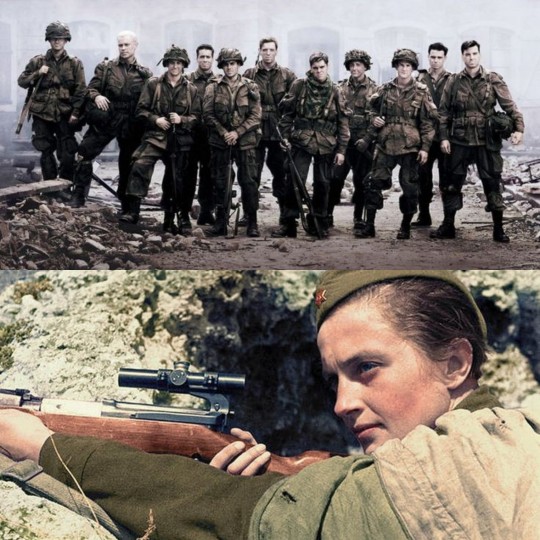
I have been asked to do this post for quite a long while and I finally got around to it. This guide is a basic guide, you may need to do further research into specific armies across the world. Armies are a necessary part to any world building, so what do we need to know about them?
(PS I had planned to include air force and navy but I am just one person and I cut myself, and the read more link, some slack)
Ranks
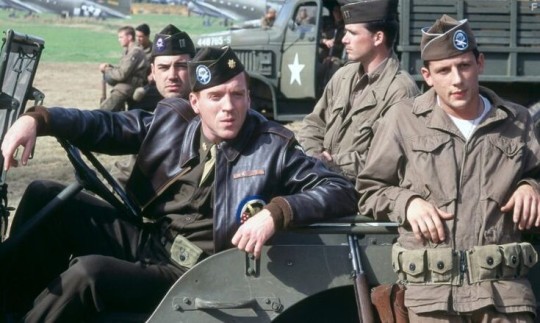
Field Marshal (FM) The Field Marshal is the highest rank of within the Army. The rank of Field Marshal was often granted in times of war (a general must have committed an act of valour, i.e. a victory). The rank can sometimes be used as a divisional command rank or brigade command. The UK, Austria-Hungary, Afghanistan, Germany, India, and Pakistan use the rank as a reward for achievement. Spain and Mexico use it for divisional command while countries such as Portugal, France and Brazil for use it for brigade command. The rank of Field Marshal is a "five star" position. The rank does not exist in the US army. They are addressed as Field Marshal Surname. Their insignia is two crossed batons surrounded by yellow leaves set under a crown.
General (Gen.) A General is the commanding officer of an army or army corps. It is currently the highest rank granted in most armies today, it is a 4 star position. A General is in charge of commanding large units, they are in charge of making strategic decisions for the army, oversee major military operations, manage the needs of the army. They are addressed as General Surname. Their insignia is four stars (US, France, Germany, Russia) and a sword and baton crossed under a crown and a star (UK). Lieutenant General (Lt.Gen) Lieutenant General commands an army corps or a division (tens of thousands of soldiers). They are also involved in strategic planning. They also hold positions within the Ministry of Defence/Equivalents. They would often serve as advisers to the government and aid Generals. It is a 3 star position and they addressed as Lieutenant General Surname. Their insignia is three stars (US, Germany, France, Russia) and a crossed sword and baton under a crown (UK)
Major General (Maj.Gen) Major General is a general officer in the army, responsible for leading and operational roles. They would command divisions of tens of thousands of soldiers. They support the officers above them, helping with strategy, executing the strategy, oversee the training of their units. They are addressed as Major General Surname. They are a 2 star position. Their insignia is a crossed sword and baton with a star (UK) and two stars (US, Germany, Russia, France). Brigadier General (Brig.Gen) Brigadier General is a one-star general officer in the army. They command brigades (3,000 to 5,000 soldiers), assisting Major Generals in tactical planning and coordination of operations. They are addressed as Brigadier General Surname. Their insignia is one star (Russia, Germany, US,), two silver stars (France) and s crown and three stars (for the UK, stars are known as pips). Colonel (Col) Colonels command brigades of about (3,000 to 5,000 soldiers), they are senior staff officers who both provide leadership to their units which are sometimes specialised agencies, such as task forces. Colonels are addressed as Colonel Surname. A silver eagle (US), a pair of diamond pips under a crown (UK), three silver pips upon shoulder braid with silver braid (Germany), three gold pips on a shoulder board with golden braid (France and Russia). Major (Maj) Majors command units of around 120 officers. They are in charge of the training and welfare of their soldiers, administrative duties within the barracks and within their unit. They are the primary staff officer in brigades. They assist superior officers in planning and executing missions and tactical plans. The Major is referred to as Major Surname. Their insignia is 2 gold stars on a shoulder board with golden braid (Russia, France) 2 silver pips on a shoulder board with silver braid (Germany), a crown (UK), a golden oak leaf (US)
Captain (Cpt) Captains lead companies usually around 50-200 soldiers. They are often the second officer in a company working alongside a superior officer. They are responsible for operations in the field such as ensuring equipment is kept up to date and in good condition, offering logistic support, and managing their troops. Captains are addressed as Captain Surname. Their insignia is two silver bars (US), three pips (UK), three silver pips on a shoulder board with silver braid (Germany), three golden pips on a shoulder board with gold braid (France, Russia) Lieutenant (Lt) Lieutenants command a platoon (about 30 odd soldiers). They are in charge of overseeing the training and discipline of their soldiers along with ensuring their welfare. They will participate in missions under the command of a superior. Lieutenants are addressed as Lieutenant Surname. Their insignia is two golden stars on a shoulder board with gold braid (Russia, France), two silver pips on a shoulder board with silver braid (Germany), two pips (UK), one silver bar (US) Second Lieutenant (2/Lt) The Second Lieutenant leads smaller units, working with enlisted soldiers. They are crucial in the training of soldiers, they maintaining personnel records and manage the resources needed for a mission or the units welfare. They would be addressed in conversation as Lieutenant but referred to as Second Lieutenant in dispatches and in correspondence. Their insignia is one gold bar (US), one pip (UK), one silver pip on a shoulder board with silver braid (Germany), one gold pip on a shoulder board with gold braid (Russia, France)
Enlisted Men
Warrant Officer 1st Class (1/WO)This is the most senior non-commissioned rank. They focus on discipline, prisoners, ammunition supplies and various technical and non-combatant services. In the UK, they often hold the rank of Regimental Sergeant Majors (RSMs) and are appointed by the Secretary of State Defence while in the US, the Secretary of the Army appoints them. They are addressed as Mr/Ms/Mrs Surname or Chief. Their insignia is one silver bar and a black square (US), the royal coat of arms (UK), four silver pips on a shoulder board with silver braid (Germany), three gold chevrons and a gold star (France), two gold stars on a shoulder board with golden braid (Russia) Warrant Officer 2nd Class (2/WO) The Warrant Officer Second Class would do similar jobs as the WO1, but they handle the below regimental section. Warrant Officer Class 1 (WO1). WO2s can be referred to as Company Sergeant Majors (CSMs) or Squadron Sergeant Majors (SSMs) (depending on their unit). They take roles within training, discipline and aiding the Warrant Officer Class 1 (WO1). Addressed as CSMs/SSMs and as Mr./Mrs/Ms. Their insignia is one gold star on a shoulder board with gold braid (Russia), Three golden chevrons (France), three silver pips on a shoulder board with silver braid (Germany), crown (UK), silver bar with two squares (US). Sergeant (Sgt)The Sergeant are responsible for the soldiers under their command. They oversee their team, acting as mentors and supervisors to their soldiers. Sergeants are over a squad of 10 soldiers. They are responsible them, from performance, prepare them for combat and their needs. They are addressed as Sergeant Surname. Their insignia is three chevrons (US, UK), two silver pips on a shoulder board with silver pips (Germany), two golden chevrons (France) and three golden chevrons (Russia). Corporal (Cpl)Corporals lead small squads of soldiers, no more than . Corporals are in charge of the training of their soldiers and ensuring that they are up to standard. They handle all the paperwork for their squad such as records. Corporals will accompany their soldiers on missions, leading patrols and overseeing their soldiers in the field. They are usually responsible for large pieces of equipment. They are addressed as Corporal Surname. Their insignia two chevrons (US, UK), one silver pips with shoulder board with a silver braid (Germany), two gold chevron (France, Russia). Lance Corporal (L.Cpl)Lance Corporals help Corporals lead their teams, acting as their second in command. They are in charge of disciplining, mentoring and leading their squads. They are also in charge of large weapons. They are addressed as Lance Corporal Surname. Their insignia one golden chevron (Russia, France), none/one silver pip (Germany), one chevron (UK) and one chevron with crossed rifles (US) Private (Pte)Privates are the lowest rank in the army. They will have just come out of training with the basic skills of a soldier. Privates are given tasks by superior officers, must obey the orders given and are usually given the more hands-on tasks, such as maintenance of weapons and their camp. They are addressed as Private Surname. Their insignia is one chevron/none (US), no insignia (UK, France, Russia, Germany).
Non-Commissioned Officers vs Commissioned Officers
You may have often heard the term "non-commissioned officer" if you have ever watched any war media. The difference is that Commissioned Officers receive their rank via a formal document signed by a high-ranking official, such as the monarch or a political leader. The Commissioned Officers are usually Lieutenants, Colonels, Generals, Captains, Majors. They are responsible for giving orders and making decisions. Non-Commissioned Officers are promoted from the enlisted ranks, gaining their promotion on skills alone. They are in charge of discipline, training and carrying out orders. They are usually ranked among Corporals and Sergeants.
Jobs within the Army

No army is just made up of officers and their soldiers. An army is like a town on the move, there are hundreds of different tasks that must be undertaken to ensure the army is fed, transported, kept in line and kept equipped.
Medic: Medics are the first responders for wounded soldiers, they administer first aid, medication and medical care to the soldiers in their unit. Medics are usually NCOs.
Chaplain: Is a soldier with some religious or spiritual calling that administers last rites, confession, spiritual guidance and solace for soldiers. They will see to soldiers of all creeds and faiths.
Artillery Crew: The Artillery Crew handle the maintenance and inventory of artillery weapons and related equipment. NCOs with training in the handling of artillery.
Military Police: The Military Police are force within the army that keep soldiers in line, maintain order and arrest any soldier caught doing a crime on the job. Always NCOs.
Intelligence: This is the information post, which involves fact gathering, recording and study of information needed by the army to mobilise.
Quartermaster: The quartermaster manages the distribution and gathering of all the things needed for the army from uniforms to equipment for the soldier's packs. Usually NCOs.
Mess Officer: The Mess Officer oversees the Mess Hall, managing the staff as they cook and prepare the army's meals. The Mess Officer would also be in charge of budgeting, inventory, health and safety and providing meals timely. Usually an officer, Captains and Lieutenants.
Adjutant: Is an officer who acts as an assistance to a superior officer taking on secretarial duties such as paperwork and arranging their diary. Usually a Captain or a Major.
Combat Engineer: The Combat Engineer is in charge of maintaining and building fortifications. NCOs with specialised skills in the field.
Logistics: Logistic Specialists handle the supplies, equipment and arranging transportation. NCOs.
Armourer: The armourer is in charge of weapons and ammunition. They handle any repairs needed and see to the safe storing of these valuable items. NCOs.
Communications Specialist: These Specialists handle communications, the communication equipment and its maintenance. NCOs usually with previous experience or training.
Mechanics: Mechanics are in charge of the maintenance of vehicles and machinery. They handle repairs, do check ups, offer support in the field and ensure everything is in good shape. NCOs with training and skills in the area.
Equipment
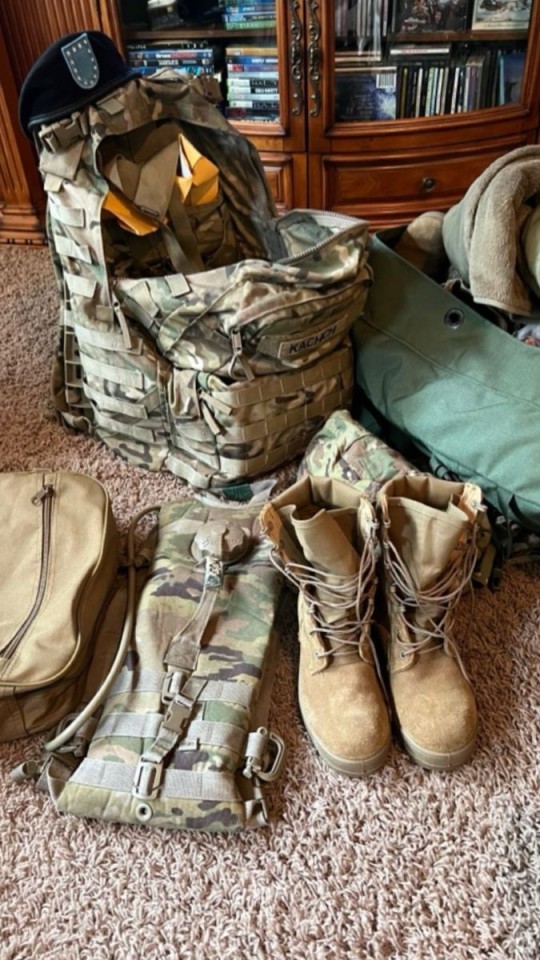
The soldiers will not be going into any situation without equipment - at least, not at first. Equipment is like gold dust in the field, especially if a unit is within enemy territory or the supply chain cannot be relied upon. Soldiers may often turn to thievery in order to resupply themselves with ammunition, weapons, supplies and even boots. In WWII, the newly formed company the Special Air Service - the SAS - actually raided their allies for supplies.
The soldier would carry essential supplies when they are first deployed. These would include (may vary):
Flasks/Canteen: Or some sort of drinking container. A soldier will need to hydrate if they don't wish to die-dydrate on a long march. They may also carry water purification chemicals such as iodine.
First Aid Kits: All soldiers will carry the basics of a first aid kit. This would include bandages, gauze, burn ointment, tourniquet, pain relief (not the good stuff), scissors and tweezers.
Knife: It is always handy to have something to cut things with.
Gun Cleaning Tools: Soldiers will have the equipment to care for their weapons. An uncared for weapon is an invitation for death.
Ammunition: A soldier would carry ammunition with them.
Entrenching Equipment: Something to dig with, usually a collapsible shovel.
Rations: Soldiers may often carry some sort of food with them, usually of the preserved kind.
Some form of shelter: Soldiers may carry something to shelter themselves such as a sleeping bag, a tent, a blanket.
Signal Mirror: Soldiers carry signal mirrors to send visual signals to communicate with others.
Toiletries: Basic hygiene items.
Weaponry
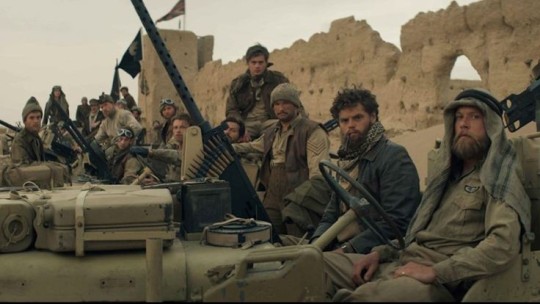
Soldiers will not only just need equipment to survive on the field. Soldiers will carry all sorts of weapons on them. It was up to the soldier to care for the weapon and ensure it is up to scratch. Ammunition, of course, doesn’t grow on trees and nor do weapons. Weapons and ammunition like supply I mentioned above could often be “liberated” from the enemy or even unwitting allies. Every soldier will carry:
A rifle: This is the long-range weapon carried by almost all soldiers. They will use this in combat, especially if fighting from a fixed position.
A handgun or a pistol: Most soldiers will carry a secondary gun. These guns are useful in tight spaces or close combat.
Bayonet: A knife or blade that is attached to the rifle. This allows a soldier to stab the enemy with their rifle.
Combat Knife: A knife used in combat.
Mortar: This is a short-barrelled artillery piece. It is used to fire shells at steep angles.
Hand Grenades: These are handheld explosives carried by soldiers. They have a delayed fuse, meaning that they are useful as both a long-range weapon and as a close-range weapon – one could leave one behind as a present. They are typically activated by pulling the pin, flinging it away from the body, toward the enemy and denoted.
Uniforms
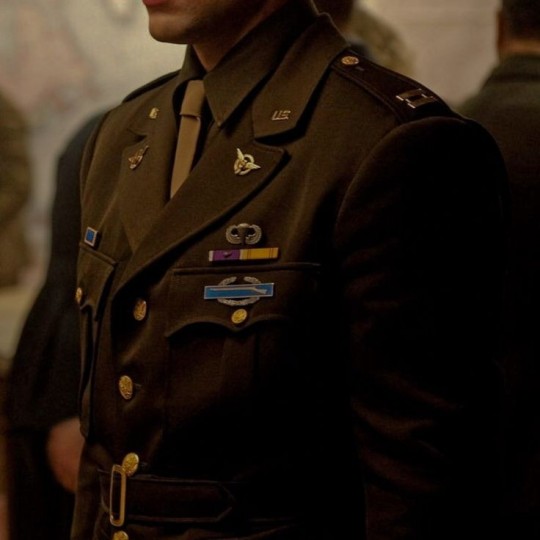
Above in rankings, we went through the insignia which is the symbols on one's uniform that denotes your rank and place in the hierarchy of things. Soldiers will be inspected every day to ensure their uniforms are up to standard and will face the wrath of superiors if their uniforms are unkempt and their appearance not up to the mark. Every private learns how to shine their own boots, sort out their own uniforms and are responsible for looking their best. There are different kinds of uniform for a soldier.
Casual Uniform: This uniform is comprised of a more casual uniform, made up of a tunic/shirt, trousers and boots. Certain units will wear caps and berets denoting their unit and rank as well. Combat Uniform: This is worn on the field. It will often reflect the climate the soldier is going into, so will be light and heavy depending on the weather. A soldier would wear a combat jacket, trousers, wear a helmet, wear their identification tags/dog tags. These would be in mute colours, usually khaki or camouflage. Service Dress Uniform: This is worn during official duties and formal events. It comprises of a dress shirt, tie, peaked cap/beret, creased trousers and a jacket with their insignia, unit symbols and medals. Dress Uniform: This is worn during very formal ceremonies. A formal jacket pinned with ribbons, embroidered insignia and the medals of their achievements and commendations, creased trousers, dress shirt and tie, polished shoes and a formal hat cap/beret.
Life of a soldier (On Base and in the Field)
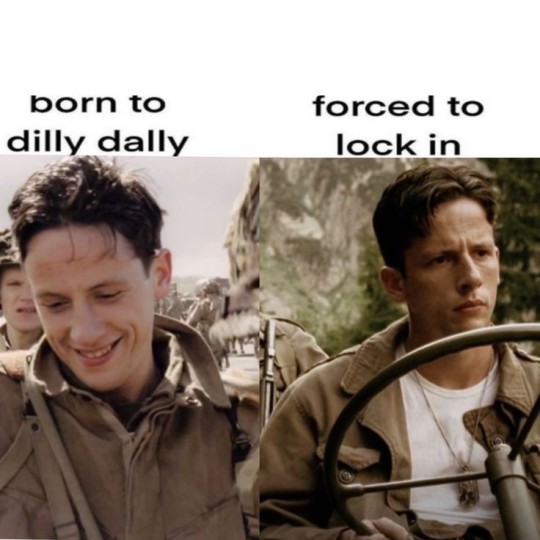
Soldiers on active duty will be expected to manage many tasks, not just firing at the enemy or storming enemy beaches. Soldiers are expected to fulfil maintenance work, defence, offence, administrative duties (if needed), engineering and communications.
On Base: A soldier’s day will be planned right down to the second. They will get up at a certain time, have an allotted time to get ready and tidy up their bunk, report to various drills and participate and have a list of duties to undertake within the day. These duties involve maintenance on base, helping with any office work, guarding and patrolling, doing specialised tasks such as helping in the infirmary. Most privates will do the grunt work, anything hands on or labour intensive while officers will see to training soldiers or paperwork or supply management.
In the Field: The life of a soldier in the field wasn’t as regimented as on base – it can’t be, since most soldiers won’t have the exact same day especially in battle or marching from place to place. But every soldier will have certain duties to undertake. Of course, fighting will be included, some soldiers would take it in shifts to man a fixed position or to engage the enemy or to participate in missions into new or enemy territory. Soldiers would take their place “out on the line”, patrolling the edges of their camp to ensure they can’t be crept up on. Soldiers will erect camp every night they aren’t marching which includes the putting up of tents, digging of latrine pits, building fortifications. Soldiers not out on the line or engaging the enemy will spend their time at camp either helping in the mess hall, in the infirmary or keeping the camp ship-shape. Soldiers may often be sent out to “forage” (*cough, cough* steal) whatever they need such as food.
The Realities of the Army
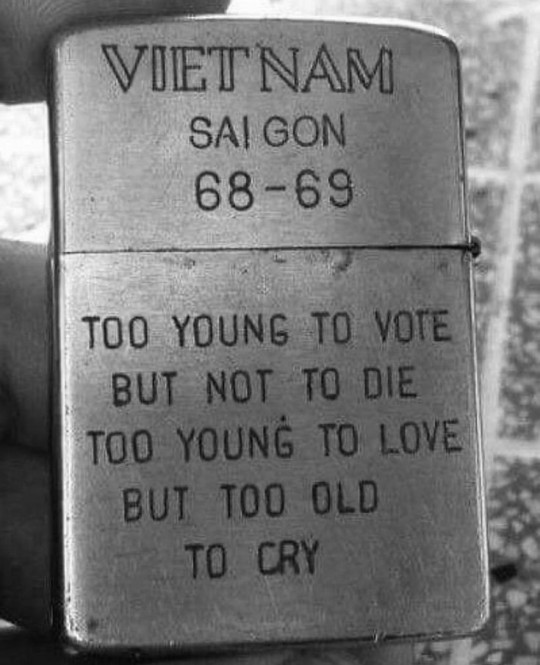
Good vs Evil. Yes, sometimes the army are the heroes. But in reality, war is a grey area. No army in the world is wholly bad or innocent. Every single army on earth has committed war crimes and every army has had to make decisions which some would find morally reprehensible. The point is that painting an army as the good guys or the bad guys in your narrative can’t work because it isn’t realistic. You can of course highlight these issues by the actions of a few soldiers while still retaining the antagonists and the heroes. You can of course pit the ideals of both sides in a war together, to firmly push your reader toward the good guys vs the bad guys. But the reality is a simple one: all armies kill, all armies steal and all armies destroy.
Civilian vs Soldier: The Reality Civilians suffer at the hands of their own army as well as the enemy. Civilians often had to deal with soldiers taking their crops, livestock and overtaking their homes in searches for food, shelter and resources. Enemy civilians would also put up with pillaging, looting and in some cases death, assault and sexual abuse. It is of course against protocol to harm civilians but things do happen in theatres of war.
The Army vs the Soldier
While the army expects a lot out of the soldier as an induvial, the army can often fall short of their duties to that soldier. This can be unintentional, for example supplies can get lost or stolen. But there are instances where soldiers and their needs are sacrificed for the greater good. They maybe passed over for supplies or reinforcements for another unit. They may be placed in difficult circumstances without any hope of relief. They may not have the equipment needed to fight their battle or stay alive. Sometimes, armies even shot their own soldiers for insubordination, ex. In WW1, many soldiers on all sides were shot by their own for “cowardice” – this may have been the case, but some cases involved soldiers who were suffering from PTSD.
Choice vs Obligation vs Threat Why do soldiers fight? What makes somebody join the army? Sometimes it is the search of opportunity, of a place, of rank and a purpose. But sometimes, going to war isn’t the choice of the soldier. Drafts and conscription make military service compulsory for certain age groups and genders. In peacetime, soldiers are enlisted voluntarily in most armies while some countries have compulsory service time even in times of peace. In some wars, criminals in prison were offered the chance to serve in the war as penance for their crimes. There are of course instances when one is threatened or forced into an armed force.
The Effects of War on the Soldier War changes people. The things soldiers see and have to do within war and training will inevitably change them as people. Sometimes, the change is positive, the army has been named by many people as the thing that straightened them out and have them structure. The army sometimes allows soldiers to travel and gain access to opportunities and education that they may never have had access to before. But undeniably, war has negatives effects on soldiers and civilians. Soldiers may suffer from PTSD, depression, suicidal thoughts and feel a disconnect between themselves and their old lives. Soldiers often find it hard to return to their life after the war, especially in radically different settings with people who don’t understand what they have been through. This can lead to substance abuse issues, alcoholism, problems with the law and troubles within relationships among family and romantic partners. Soldiers of course can get injuries while in war or even in training. Loss of limbs, damage to the brain and other organs, broken bones, burns, shrapnel injuries and of course gunshot wounds are all common. Soldiers often get ill while in the field, such illnesses including typhoid, hypothermia, trench foot, dysentery, malaria, pneumonia etc. These are caused by the close living quarters and the often-sub-standard living conditions. Soldiers would often be at risk for pests such as lice and fleas because of their living conditions. Soldiers may often face problems with nutrition, might suffer from dehydration and starvation especially if supplies are scarce.
The Geneva Convention
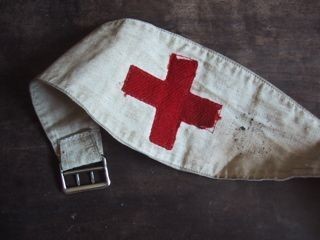
Your world may not include the Geneva Convention, may pre-date the Geneva Convention or Geneva may not be a place within your WIP, but I include this here so you might have a fair idea about the “rules” of modern warfare. This is just a brief version.
Medical personnel are not to be specifically targeted in operations.
Medical facilities and equipment is not be targeted in operations
Any wounded soldiers or civilians are to be treated, despite allegiance.
Prisoners cannot be tortured or harmed in any way
Prisoners must be fed, well-kept and treated for any injury
Prisoners are not under obligation to tell their captors anything but their name, rank and other personal information – this is so they can be recorded and all information must be recorded and sent to the captured soldier's officers
Prisoners must be allowed to communicate with family and friends.
Prisoners have the right to receive any packages or mail.
Prisoners have the right to access the services of the Red Cross, who cannot be prevented from visiting and inspecting them
Prisoners who are seriously wounded or ill must be released
Any religious figures are to be captured and released as soon as possible
Soldiers cannot take hostages, they cannot pillage, they cannot take slaves.
Soldiers must abstain from humiliating and degrading any captured soldiers or civilians.
Reprisals against civilians and other soldiers are forbidden.
Group punishment is not permitted (Yes, that one teacher did break the Geneva Convention)
Prisoners can be tried by their captors, but they are entitled to a fair trial.
All POWs shall be released at the end of conflict
At sea, hospital ships cannot engage in war.
Any shipwrecked crew on a ship must be rescued despite allegiance.
Children, pregnant women, mothers with very young children, the elderly, the sick and wounded who are imprisoned for a long time, must be released as soon as possible.
Surrendering soldiers, civilians and civilians who participate in acts against an army cannot be harmed and must be taken alive.
The use of weapons to cause suffering, say a non-fatal wound or mutilation is prohibited.
It outlaws indiscriminate attacks on civilian populations and destruction of food, water and other materials needed for survival.
The destruction of resources that could affect the population such as poisoning the water supply is not permitted.
Certain infrastructure cannot be destroyed or targeted. This includes dams and nuclear stations. Cultural landmarks and religious landmarks are also to be spared.
Recruitment of children into the armed forces is prohibited.
The use of certain symbols such as the Red Cross in order to deceive the enemy is prohibited.
Civilians who do not take part in combat are to be treated respectfully. They are protected from violence from soldiers.
Children and vulnerable people are top-priority to be evacuated to safe havens as soon as possible. All efforts will be made to reunite them with family.
The targeting of civilians and anything that sustains their well-being such as food sources is prohibited.
Military Terminology

This is by no means a full list but these are the most commonly used terms.
Boots on the ground – to physically be in a location
Inspection - a superior officer takes formal note of appearance, condition of living area and weapons.
Drill – a practise in various manoeuvres, marches, procedures
Pass - leave to have some free time, sometimes off base.
Off base - away from military barracks
Tour of duty – the period of time which an action is completed in.
Civvies – Civilian clothing
Detail - a specific task undertaken by a unit or soldier
Mess hall - dining facility
Latrine - toilet
Latrine duty - digging a Latrine pit or cleaning the facility
Flanking - Attacking an enemy formation from the sides
Envelopment - surrounding the enemy from multiple sides
Penetration - breaking past the enemy’s front lines
Reconnaissance by Fire - Firing at positions that may be occupied by the enemy to provoke them into returning fire (so you know where they are)
Ambush - Attacking from concealed position
Retreat - go back the way you came (DO NOT COLLECT €200)
Feigned Retreat - Pretending to retreat and then attacking the enemy
Perimeter - boundary of fortified area
No Man's Land - the space between front lines
Contact line - where opposing sides meet to fight
Supply line - the route the supplies get from base to the field.
Front line - the furthest out troops are place on the line, this is where the most intense fighting happens
Barracks - sleeping quarters in base
Foxhole - a dug position in the ground
Combatant: A person actively engaged in fighting.
Non-combatant: A person not engaged in a conflict.
Civilian: Somebody who is not a member of any military unit.
Militia: Civilians who are armed and trained to fight.
Guerrilla: Small, independent units that takes up arms against an armed force. Very effective.
Saboteur: Somebody who deliberately sabotages equipment and supplies.
Spy: Somebody who gathers information about the enemy.
Operative: A soldier who carries out a specific task.
Mercenary: A soldier for hire
Contractor: A person or a group of people who are hired to provide advice, services and additional support to the army and their operations.
Conscription: Compulsory enlistment.
Enlistment: Joining the army.
Exercise: Simulated military practises or manoeuvres for training.
War game: Simulated war fare for training.
Mission: The operation.
Objective/Target: The objective of the mission.
Campaign: Multiple operations.
Down Range – being within the combat zone
In-Country – being within in a war zone
Quarters – can mean one of two things either it is a medic's order to stay in the camp or barracks or military family housing.
Squared away - to fix
Siege: Where one army sits outside a fortified town or position and tries to claim it.
Convoy: A large group of vehicles such as trucks, jeeps and tanks travel together. It is harder to target more than one vehicle.
Escort: More vehicles and soldiers who accompany a convoy.
Strike/Assault: Attacking the enemy.
Counterattack: An attack to respond to a previous attack
Rear: Behind the formation
Front: Before the formation.
Line: The formation.
Column: The formation in a line.
Formation: The arrangement of soldiers
Deployment: Soldiers moving to a position.
Redeployment: Sending soldiers to another position.
Mobilization: Readying soldiers, their supplies and equipment for deployment.
Demobilization: The disbanding of soldiers after an operation.
Reserve: Soldiers and equipment held back. This is usually to conserve soldiers and supplies for emergencies or shortages.
Reinforcement: More soldiers and equipment sent to the soldiers on the line to bulster their efforts.
Casualty: Death, injury, missing.
KIA: Killed in action.
MIA: Missing in action.
Surrender: Yielding to the enemy.
Ceasefire: An agreement to cease hostilities.
Armistice: A temporary stay of fighting.
Battalion: A large unit of soldiers. Usually in the range of 300 upwards to 800 or so soldiers.
Regiment: A unit made up of several battalions.
Division: A military unit (10,000-20,000)
Corps: A unit, (20,000-50,000)
Theatre: The place where military operations are undertaken.
Engagement: A battle or a conflict with the enemy.
Manoeuvre: Planned movement.
Logistics: The planning of moving soldiers and equipment to soldiers.
Ordnance: Supplies.
Artillery: Large-calibre firearms.
Infantry: Soldiers who fight on foot.
Reconnaissance: Gaining information about the enemy and their positions.
Tactical: Planning and implementation the military strategies.
Strategic: Planning and directing strategies.
Operational: The following through of military operations.
Command/Control: The authority to direct military operations.
Communications: The passing of information between units, base and HQ.
HQ: Head Quarters
Intelligence: Information about the enemy
Counterintelligence: Preventing the enemy from gaining information about the army, such as the famous Operation Mincemeat.
Camouflage: The use of material or paint to hide oneself from one’s enemy.
Fortification: Defensive structure
Entrenchment: Digging trenches or foxholes.
Garrison: Military station.
Bivouac: A temporary camp, but this camp is without no cover. This means no tents or shelter.
Dog Tags - Metal identification tags worn by soldiers
Patrol: Soldiers will leave camp or their positions to walk within their boundaries
Raid: Attacking on the enemy’s position.
Zero Dark Thirty - Early as fuck, from 0100 hrs to sunrise.
Copy - I understand
Unit - can mean any organisation in the military
Platoon - a section within a company made up of 30-50 soldiers
Contact - Engaging with the enemy
Tactically Acquired - Stolen
Squad - a smaller faction of a company
CO - Commanding officer
XO - second in command
Hang Fire - wait for the next set of orders
Demilitarized Zone - a place that is no go for military equipment, weapons and soldiers
AWOL - Absent without leave
PT - Physical Training
Skivvies - ones undergarments
Active Duty - Full time duty in active service
As You Were - Go back doing whatever you were doing or standing how you were standing
BOLO - Be on the Lookout
CP - checkpoint
Bunk - Bed
Ruck - backpack
Smoked - physical punishment for an infraction.
Zone of Action - a specific part of the tactical area.
About face - a manoeuvre where a someone or a group turn to face the opposite direction.
POW - Prisoner of War
POW Camp - facility to house POWs
Halt - stop marching/moving
Present Arms - salute, typically by presenting one's weapon or raising the right hand to the forehead
Parade Rest - stand with one's feet shoulder-width apart, hands folded behind their back
Fall out - break formation
Fall in - get into formation
At ease - stand in a more relaxed position
Attention - stand upright, heels together, back straight, shoulders back, arms at the sides.
Books and Media I recommend
Band of Brothers (HBO, Limited Series)
Beyond Band of Brothers by Dick Winters
Band of Brothers by Stephen Ambrose
M*A*S*H
The Unwomanly Face of War by Svetlana Alexievich
Lady Death: The Memoirs of Stalin's Sniper by Lyudmila Pavlichenko
The Six Triple Eight
Some Desperate Glory: The First World War the Poets Knew by Max Egremont
Poems of the Great War 1914-18
Poems of the Great War by Wilfred Owen
Poems of the Great War by Siegfried Sassoon
Poems of the Great War by Robert Graves
Poems of the Great War by Rupert Brooke
Poems of the Great War by David Jones
SAS Rogue Heroes (BBC)
SAS: Rogue Heroes: The Authorised Wartime History by Ben MacIntyre
Saving Private Ryan
All Quiet on the Western Front by Erich Maria Remarque
All Quiet on the Western Front
Private Peaceful by Michael Mupurgo
War Horse by Michael Mupurgo
Road to War by Valerie Wilding
The Trenches by Jim Elderidge
D-Day by Byran Perett
D-Day by Ben MacIntyre
Japan's Pacific War by Peter Williams
Operation Mincemeat by Ben MacIntyre
War Nurse by Sue Reid
Helmet for my Pillow by Robert Leckie
With the Old Breed by Eugene B Sledge
Hacksaw Ridge
D-Day Through German Eyes: How the Wehrmacht Lost France by Jonathan Trigg
Platoon
Britain’s Secret Defences: Civilian saboteurs, spies and assassins during the Second World War by Andrew Chatterton
If You're Reading This...: Last Letters from the Front Line by Sian Price
A Bridge Too Far
Firepower in Limited War by Robert Scales
Storm of Steel by Ernst Jünger
Dunkirk
The Things They Cannot Say: Stories Soldiers Won't Tell You About What They've Seen, Done or Failed to Do in War by Kevin Sites
1917
On Artillery by Bruce Gudmundsson
Letters From Iwo Jima
Das Boot
The Longest Day
Come and See
War Horse
617 notes
·
View notes